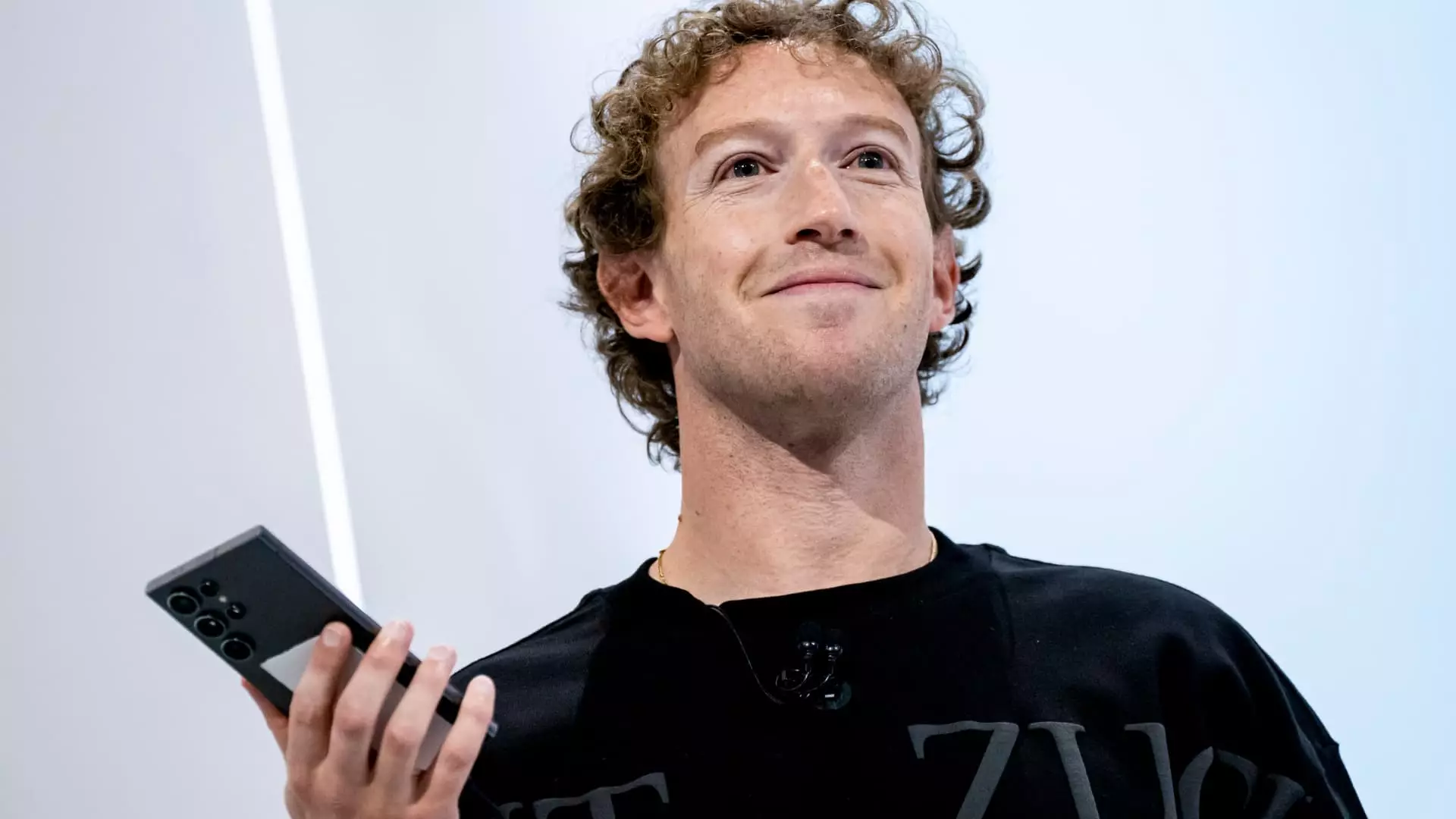The tech landscape is rife with competition, and few rivalries are as pronounced as that between Meta and Apple. Recently, Meta’s CEO Mark Zuckerberg took to the airwaves in a revealing podcast interview, where he offered pointed criticisms of Apple, targeting both their innovation timeline and business practices. His remarks on the “Joe Rogan Experience” expose a dichotomy that is at once intriguing and indicative of broader industry trends.
Zuckerberg acknowledged the pivotal role that the iPhone has played in global connectivity. His assertion that it has been “great” because virtually everyone now owns a smartphone underlines its impact on everyday life and communication. However, he juxtaposes this with a sentiment of stagnation, suggesting that since the groundbreaking innovation of Steve Jobs, Apple has merely coasted along without significant advancements. This reflection raises critical questions about what constitutes innovation in the tech world. Are iterative updates enough to sustain consumer interest, or do companies need to continuously push boundaries to retain relevance? As Zuckerberg pointed out, iPhone sales are reportedly waning, suggesting a potential consumer fatigue with minimal upgrades.
From this perspective, one might argue that Apple’s approach—prioritizing incremental improvements over genuine innovation—could backfire in a competitive environment where companies like Meta are aggressively pursuing new frontiers. This leads to an essential understanding: innovation isn’t solely about hardware advancements; it also includes facilitating an ecosystem where other innovations can thrive.
Zuckerberg’s critique extends to Apple’s financial strategies, particularly the controversial 30% tax levied on app developers. He contended that this approach serves to enhance Apple’s revenue at the expense of the wider developer community. The idea that Apple is “squeezing” developers for profit reveals a broader issue within the tech industry—namely, the balance of power between platform holders and the creators who populate those platforms.
Meta, for its part, has been positioning itself to support developers more readily, which could be perceived as a strategic advantage in this ongoing battle. Zuckerberg’s remarks hint at a belief that if Apple loosened its grip on developers, Meta could potentially double its profits. This highlights an essential aspect of market dynamics, where cooperation with developers can foster innovation and contribute to a healthier tech ecosystem, ultimately benefiting consumers as well.
While Zuckerberg critiqued Apple’s focus on privacy and security as a façade for market control, his analysis presents a complex intersection of ethics and business strategy. Indeed, Apple has often championed user privacy as a core brand value, using it as a shield against criticism. Nonetheless, Zuckerberg’s assertion that better protocols and security measures could lead to greater interoperability raises concerns about how user experiences are influenced by corporate policies.
With the tech industry increasingly under scrutiny for privacy infringements, it’s essential to dissect whether strict control is genuinely safeguarding user data or serving more as a monopoly tactic. Zuckerberg argues the latter, prompting further reflection on the ethical implications of such business practices within a market benefitting from reduced barriers to entry and increased consumer choice.
Zuckerberg did not hold back with his commentary on Apple’s Vision Pro headset, suggesting that its initial output missed the mark. This is noteworthy as Meta is deeply invested in the virtual headset space, leading to an inevitable comparison. While he acknowledged Apple’s efforts as a significant attempt at innovation, the implications of its underwhelming sales paint a vivid picture of consumer preferences in the burgeoning AR/VR market.
This observation not only reflects on Apple’s current strategy but also underscores the volatility of technology adoption. Early versions of products often undergo revisions and refinements, yet consumer expectations remain high in a marketplace driven by rapid technological advancement.
In essence, the exchange between Mark Zuckerberg and Apple reveals a tech industry grappling with the tensions between innovation, market control, and consumer rights. As competitors, both companies possess unique strengths—Meta with its ambitious pursuits in social connectivity and Apple with its established ecosystem and brand loyalty. The ongoing challenge for each lies in remaining relevant without succumbing to complacency, and this dynamic is sure to evolve as new technologies and consumer demands emerge. As the rivalry unfolds, it becomes clear that the ultimate beneficiaries will be consumers, who stand to gain from a more vibrant and engaging tech landscape.

Leave a Reply